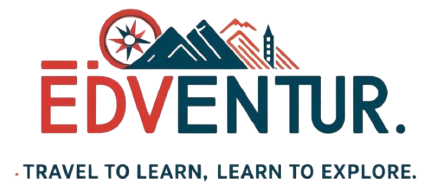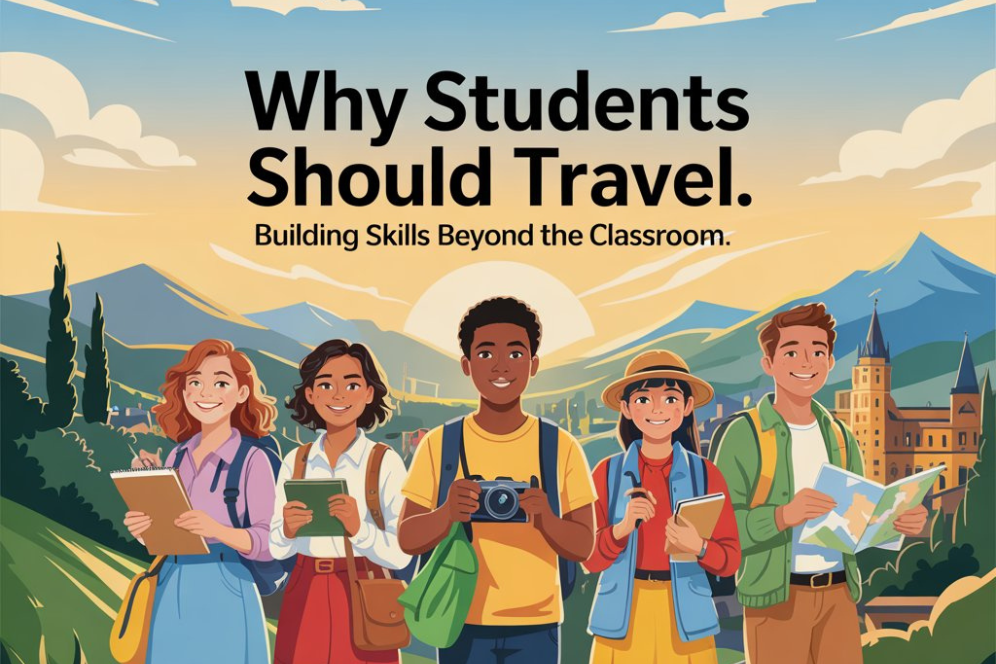Education extends far beyond textbooks, lectures, and exams. For school and college management committed to holistic student development, integrating travel into the curriculum offers a unique opportunity to learn while having fun. Well-crafted student tour packages and study tours not only reinforce classroom learning but also cultivate essential life skills that prepare students for an increasingly interconnected world.
1. Academic Enrichment through Real-World Context
Bringing Theory to Life
Visiting historical monuments, science centers, or ecological reserves transforms abstract concepts into tangible experiences. For example:
- History students visiting ancient forts and museums engage more deeply with timelines and narratives.
- Science learners exploring planetariums or botanical gardens witness scientific principles in action.
This contextual learning enhances retention, helping students better recall and apply knowledge long after they return to campus.
Cross-Disciplinary Learning
A single destination can span multiple subjects. Consider a trip to an urban heritage site:
- Art students study architectural styles.
- Geography students analyze land use and urban planning.
- Economics students examine the impact of tourism on local markets.
Such study tours encourage interdisciplinary thinking, mirroring the complexity of real-world problems.
2. Personal and Social Development
Independence & Responsibility
Travel demands that students manage their time, belongings, and finances. Navigating a foreign city or coordinating with peers builds:
- Self-reliance in planning daily activities.
- Accountability for adhering to schedules and safety guidelines.
Communication & Teamwork
On a group tour, students collaborate on logistics, problem-solve unexpected challenges, and support one another. These interactions:
- Strengthen verbal and nonverbal communication skills.
- Foster empathy and cooperative leadership.
Such social competencies are invaluable in professional settings and community engagement.
3. Cultural Competence & Global Awareness
Intercultural Exposure
Whether domestic or international, travel introduces students to new traditions, languages, and worldviews. Immersive experiences—like homestays or cultural workshops—enable students to:
- Appreciate diversity and challenge stereotypes.
- Develop global citizenship, understanding their role in a multicultural society.
Language Skills
Even brief exposure to another language environment encourages curiosity and practical language learning. Students gain confidence in basic communication, paving the way for future linguistic proficiency.
4. Career Exploration & Professional Growth
Industry Immersion
Study tours often include visits to businesses, research institutions, or technology parks. These encounters allow students to:
- See real-world applications of their chosen fields.
- Network with professionals and understand workplace cultures.
Inspiration & Aspirations
Meeting industry experts or observing cutting-edge facilities can ignite students’ ambitions, guiding them toward specific career paths and postgraduate opportunities.
5. Health, Well-being & Resilience
Physical Activity
Walking tours, nature treks, and hands-on workshops encourage movement, combating the sedentary lifestyle associated with classroom study.
Mental Refreshment
A change of environment stimulates creativity and reduces stress. Students return revitalized, often with renewed focus and motivation.
Resilience Building
Unforeseen travel hiccups—delays, weather changes, or logistical snags—teach adaptability. Overcoming these minor setbacks builds resilience, a key trait for academic and personal success.
6. Practical Considerations for Schools & Colleges
Aligning with Learning Objectives
- Curriculum mapping: Tie each destination to specific syllabus goals.
- Pre- and post-trip assignments: Ensure continuity of learning and reflection.
Safety & Risk Management
- Select reputable vendors for transportation, accommodation, and guides.
- Provide clear codes of conduct and emergency protocols.
Budgeting & Concessions
- Plan concession-friendly student tour packages by leveraging group discounts and off-season rates.
- Offer transparent payment schedules and school travel concession tips to ease administrative burden.
Conclusion
In an era of rapid globalization and technological disruption, students require more than academic knowledge—they need adaptability, cross-cultural competence, and real-world problem-solving skills. When school and college management invest in thoughtfully designed student tour packages and study tours, they provide learners with experiences that are both educational and enjoyable. By choosing opportunities where students can learn while having fun, institutions nurture well-rounded individuals ready to excel in a complex, dynamic world.




